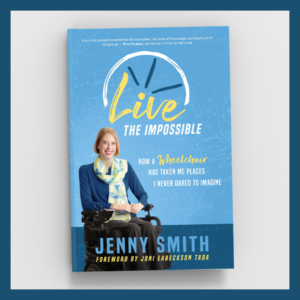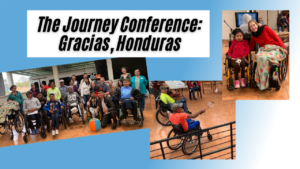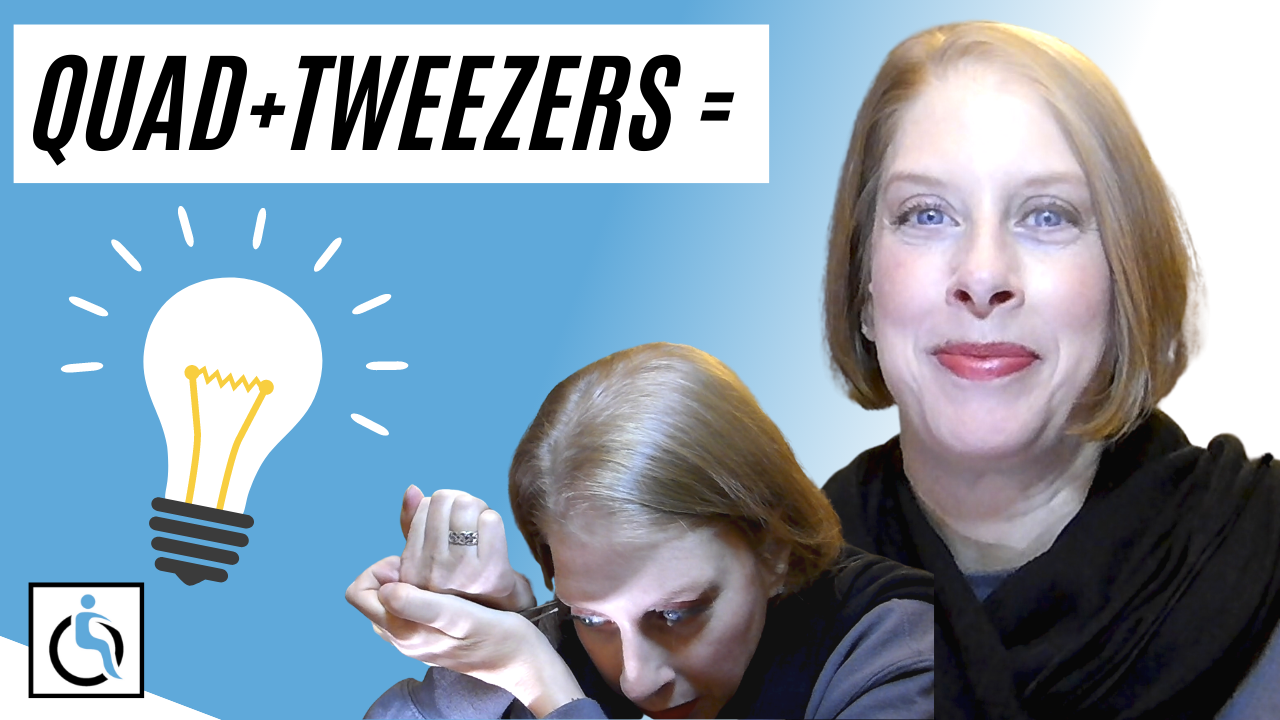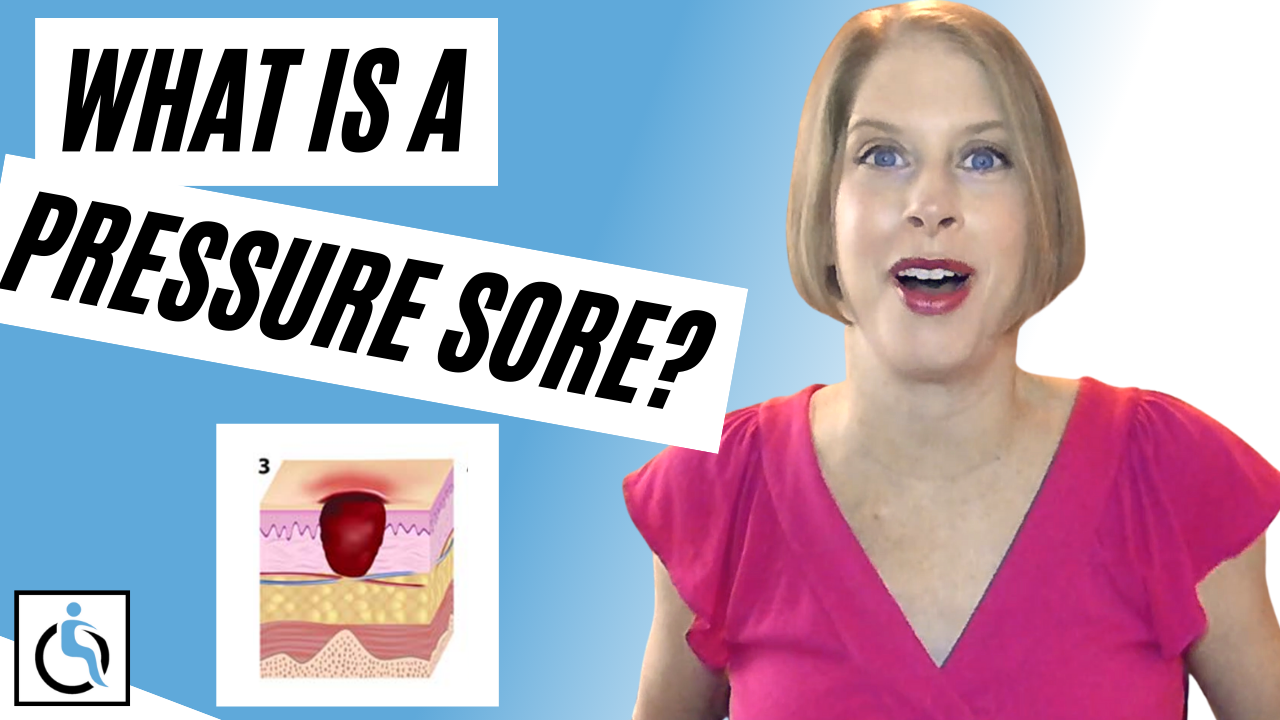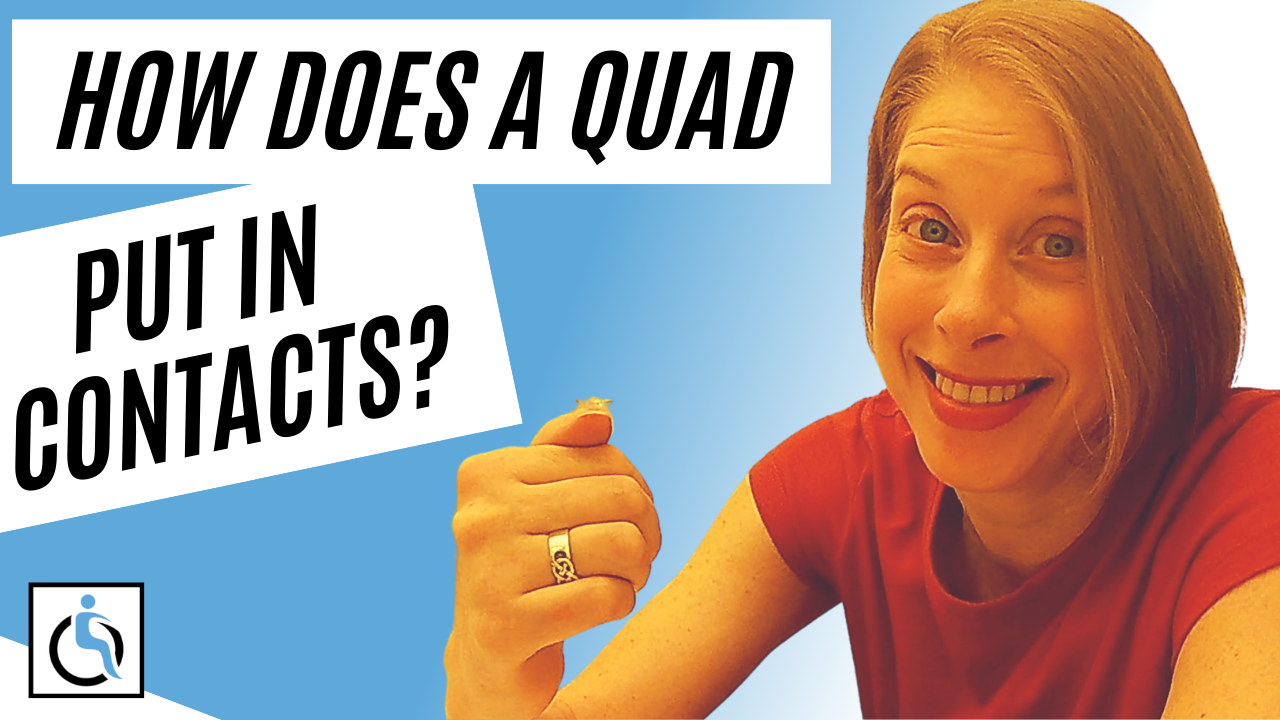Anyone with a disability knows that finances are one of the most stressful parts of a disability. The burden of health insurance, co-pays, supplies not covered by insurance, and caregivers (no, insurance doesn’t pay for this) can be overwhelming. Studies back this statement showing that households that include an individual with a disability require—on average—about 29% more income to make ends meet (read here and here). Often, you have to be painfully below the level of poverty to receive benefits that include personal care, or you need to be very well off financially. It’s difficult—but not impossible—to find a middle ground. Sometimes, the only financial advice offered to people with disabilities is, “Get on SSI/SSDI and stay poor the rest of your life.” Well, the latter may be implied, but it’s the reality of the situation.
Disability benefits can be a good option until someone can get back to work. However, when a person is capable of working, SSI/SSDI is not a long-term solution to financial freedom. It’s prison. Some people may not be able to work—or if they are able—they will lose the funding to take a shower, go to the bathroom, and prepare food; about 6 hours of help per day costs a whopping $40,000 just for those basic needs.
Many people become disabled just as they’re beginning their careers. They go through life savings to pay for medical bills and only then can they qualify for Medicaid which pays for a portion of personal care services. In order to qualify for Medicaid, you cannot have more than $2000 in assets. So, how does a person save money to be able to move out, buy a car to get a job, etc.? Yes, ABLE accounts are an option for those who qualify, but it’s only the tip of the iceberg of a bureaucratic nightmare.
Learning the basics
When I was in my early 20s, I took a class called Financial Peace University. I learned the basics of budgeting and the importance of investing from an early age. While I haven’t—couldn’t—practice all of the principles of this course, it gave me the foundation to get me where I am today: completely debt free.
I was fortunate that I was injured at the age of 16. I still had the support of my parents which included health insurance, housing, and financial support. The Office of Vocational Rehabilitation (OVR) allowed me to get through college and graduate school without student loans. Funding for Vocational Rehabilitation has decreased over the years in many states which is a shame. Yet I’m forever grateful for OVR’s help.
The risk of working
I took a risk when I got my first “real” 20-hour-a-week job out of grad school. I lost Medicaid, a secondary insurance that covered deductibles, co-pays, and supplies that insurance didn’t cover—plus my personal care. Thankfully, I qualified for a state program that paid for personal care to help me get ready in the mornings and back into bed each evening. I started putting a small amount each month into a retirement account. As I changed jobs—all in support-based ministry positions—I continued saving for retirement and a new vehicle, once my current vehicle was paid off.
In 2016, I accepted a contract writing position in addition to my full-time job. I intended to throw that money at my mortgage. But I got kicked off the program that paid for personal care because I “made too much money.” (Read more about how society punishes people with disabilities for working.) So, I worked that second job to be able to get up and go to work. Finally, the contract position ended and, thankfully, my salary increased and I no longer had to work two jobs.
What financial plan guided me
The financial concepts from Ramsey Solutions helped me manage my finances. If you aren’t familiar with Ramsey Solutions, they are well-known for a nationally syndicated radio program, podcast, and YouTube channel The Ramsey Show hosted by Dave Ramsey and other Ramsey personalities. Dave Ramsey is the creator of Financial Peace University which I took all those years ago. Popular catchphrases from this show include:
- Live like no one else so you can live and give like no one else.
- Debt is dumb, cash is king.
- The borrower is a slave to the lender.
- The paid-off home mortgage is the new status symbol of America.
What I did the “Ramsey Way”
Budget
I budget. Every monthly expense has a line item. I can go back over 20 years in QuickBooks and tell where every penny was spent. As Rachel Cruze says, “A budget tells your money where to go instead of wondering where it went.”
Save
I have an emergency fund of 4 or 5 months of living expenses for when life happens. This includes unemployment and medical complications—both of which I have experienced. The emergency fund has prevented me from going into debt. I also have sinking funds for future expenses that I can expect, such as a new van, car repairs, appliances, and taxes.
What I did “Dave-ish”
“Dave-ish” is what Ramsey Solutions calls kind of following their principles.
Pay cash for vehicles
A modified vehicle in cash? Um…not on my non-profit salary. Buy a used vehicle as Ramsey suggests? In my state, Vocational Rehabilitation will only pay for the modifications on a van if the vehicle has less than 30,000 miles on it. Finding a used modified vehicle with these restrictions is nearly impossible.
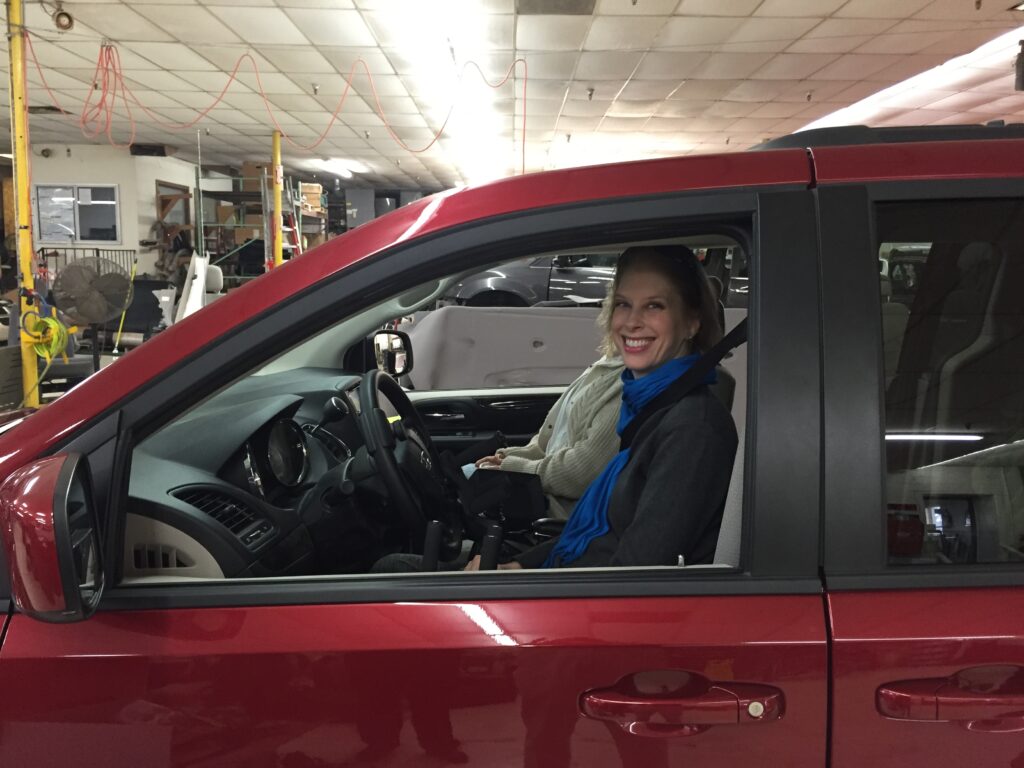
I always have a “car payment” whether or not I have a loan. But even saving for years hasn’t allowed me to buy a $50,000 vehicle in cash. But between selling the used vehicle and those added-up “car payments” I put away each month, I’ve managed to only need a 3-year loan of about $250 per month—which I’ve always paid off early. And then I started saving for the next vehicle.
A mortgage
In 2007, I made the big decision to buy a condo. Honestly, I was fairly clueless as to what I was doing. I only put $2000 down and had a 30-year mortgage. Ramsey recommends a 15-year mortgage with at least 5% down for first-time homeowners with a monthly payment of less than 25% of your take-home pay.
I didn’t take the time to save a larger down payment. I was 34 years old and beyond ready to move out of my parents’ house. Not a single accessible apartment was available, so I purchased a condo that was being built so modifications (e.g., roll-under sinks, roll-in shower, etc.) didn’t cost extra. Thankfully, my mortgage was under the recommended 25% of my take-home pay.
Is the location of my condo perfect? No. Is it my dream house? No. Am I grateful for my accessible home sweet home? Absolutely.
And I just paid off the mortgage in 17 years.
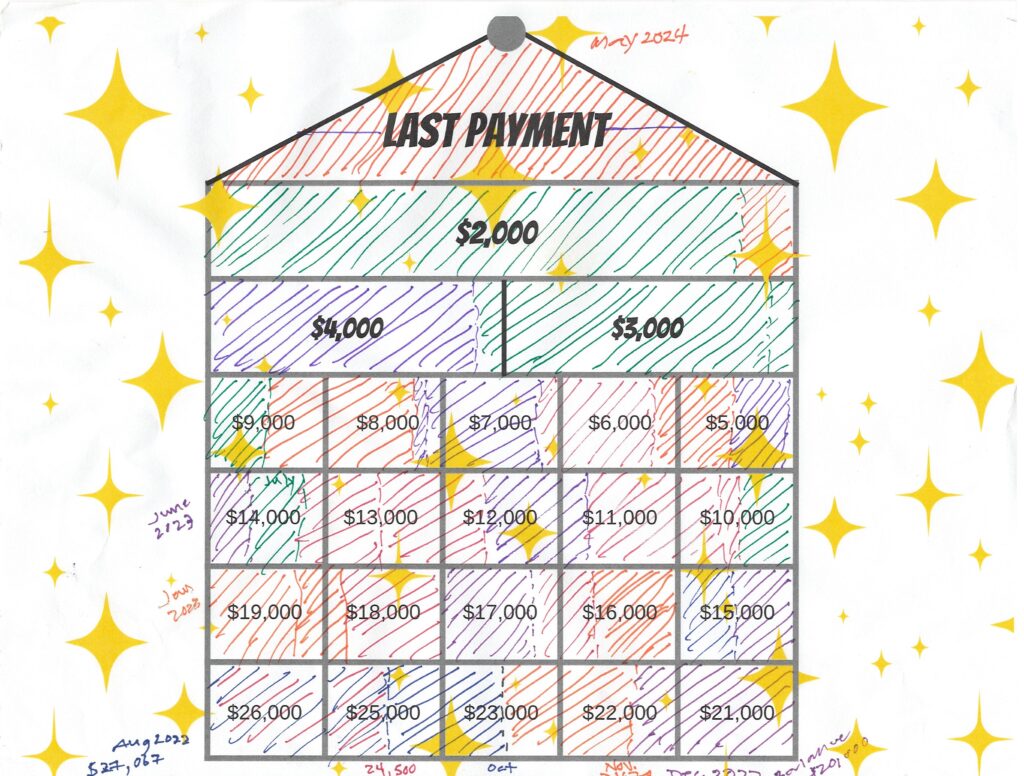
How did I do this? I kept to my budget. A vacation? Nope. I did stay-cations or tagged on a few days after a work trip. I have a minuscule budget for eating out, which meant saying “no” to a lot of opportunities. I took on extra jobs that I could do on evenings or weekends (or took vacation days from my primary job when necessary) and put that money toward the principle.
Save for retirement
While I’ve always saved for retirement, I haven’t been able to reach the recommended 15% of my take-home pay. My medical expenses are 40 percent of my take-home pay, and I could never reach that threshold. But now that I’ve paid off my mortgage, I’m finally able to invest 15%.
The decision to pay off my mortgage rather than invest the full 15% was intentional. As a quadriplegic, I can’t guarantee my body allow me to work until retirement age. I chose to have a paid-for home so I can (hopefully) keep my house if I can no longer work and have to go on Social Security Disability (SSDI). (Read more about the differences between SSI and SSDI here.)
Expectations
Like other areas of life with a disability, my expectations have needed to be adjusted. I need to accept that my life may never look like the lives of my nondisabled peers. It’s easy to become bitter from what seems unfair. I didn’t ask for my injury or the expenses that come with it. I struggle with envy as I see friends’ picture-perfect vacations that I can only dream of.
Financial peace means changing my expectations:
- Be grateful for what I have, not what I can’t afford.
- Enjoy stay-cations rather than go into debt for a bucket-list vacation of my dreams.
- Stop comparing. I need to remind myself to not Instagram-my-way into discontentment.
- Be wise. When the time comes, be wise in deciding when work is taking too much of a toll on my body.
Financial peace for the disabled community
So, let’s return to my original question: Is financial peace possible for someone living with a disability? Honestly, unless someone has a massive settlement or has an incredibly high-paying job, it’s difficult. But not impossible. I’ve had to forego “normal” American activities like vacations and eating out weekly. I cook most meals from scratch. I find inexpensive local activities to enjoy. I get books and audiobooks from the library rather than buy them. I cut back my personal care from three mornings a week to two when post-pandemic wages increased. As for adaptive sports, if it’s not funded by a grant or frequent flyer miles, I won’t participate.
So… peace. Yes, peace is possible. Yet financial peace is elusive. Maybe it’s just my personality. I am a planner. (I think that’s a nice way of saying “worrier.”) As I age, I’ll probably need more help. Where will that money come from? I don’t qualify for long-term disability insurance and certainly not for long-term care insurance.
But… I plan. I save. I trust.
I’ve always had what I needed. Not what I wanted, but what I needed. And I have to cling to that knowledge and let go of those “wants.” I’ll continue to save for the trip to see a dear friend; I started saving for that visit over 25 years ago. Maybe it will happen, maybe not.
Most importantly, I’ll do what I can now to prepare for the future and trust that “God will supply every need” I have (Phil. 4:19 ESV).
Or as Dave says, “Remember, there’s ultimately only one way to financial peace, and that’s to walk daily with the Prince of Peace.”
